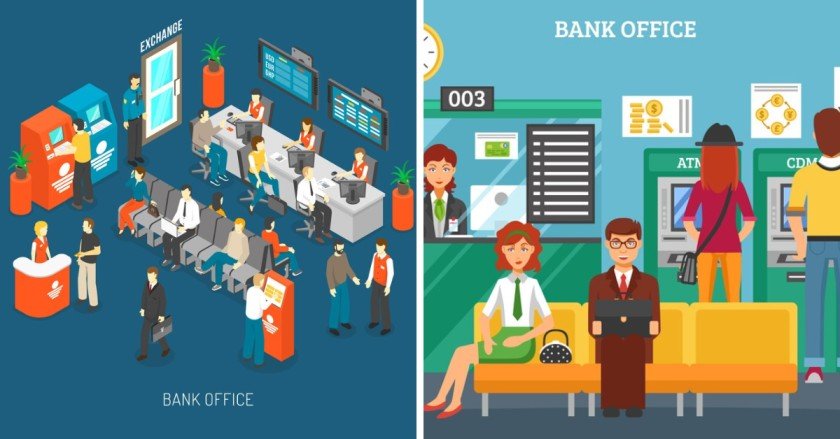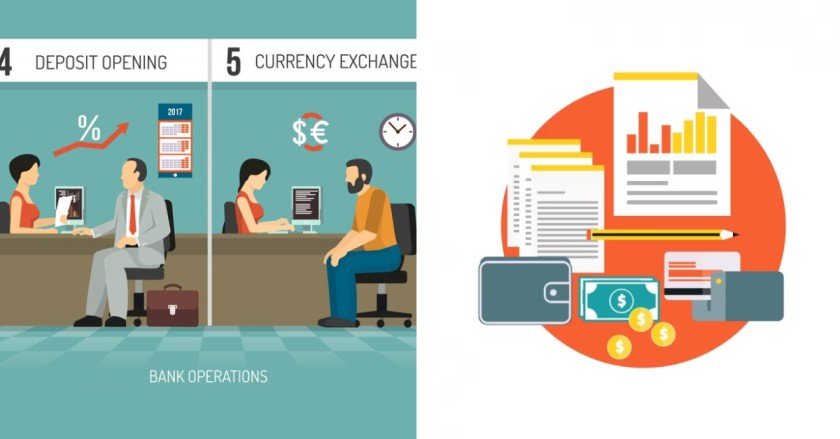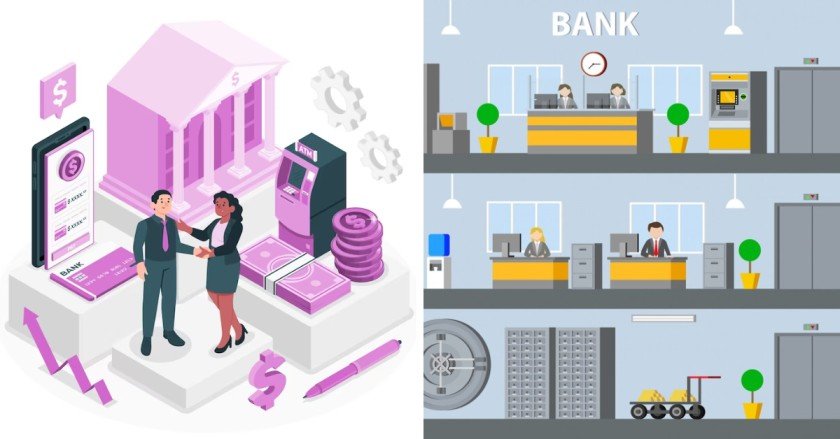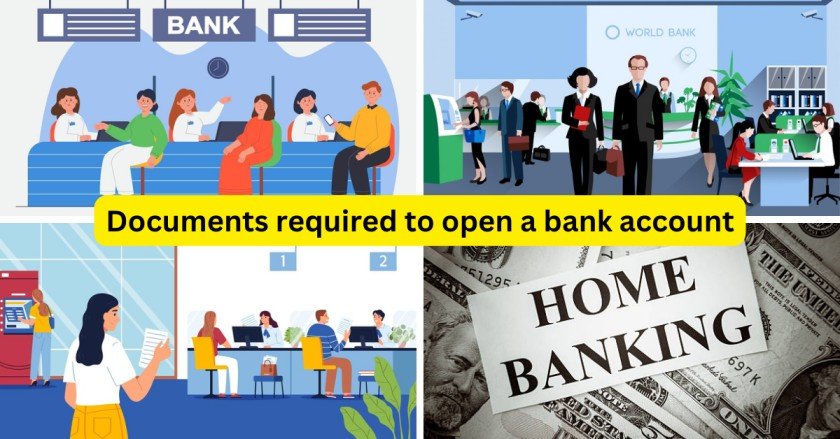Opening a bank account can be a daunting task, especially if you’re not sure what documents you need to have in hand. But fear not, because we’ve got you covered! In this article, we present a comprehensive checklist of documents you will need to open a bank account, ensuring you don’t miss a beat in the process.
Whether you’re a seasoned professional or a young adult just starting out, having a bank account is essential for managing your finances, making transactions, and even building your credit history. But different banks may have different requirements, so it’s crucial to come prepared with the necessary documents to avoid any delays or hassles.
From identification proof to address verification, income and employment documents to reference letters, our checklist covers all the essential documents you’ll need to successfully open a bank account. We’ll also provide insights and tips on how to gather and organize these documents efficiently.
So, if you’re ready to take the first step towards financial independence, join us as we guide you through this essential checklist and ensure a smooth and seamless bank account opening experience.
Table of Contents
Importance of opening a bank account
Opening a bank account offers numerous benefits and is an important step towards financial stability. Firstly, having a bank account provides a safe and secure place to store your money. Instead of carrying cash or keeping it at home, a bank account allows you to access your funds conveniently through various channels such as ATMs, online banking, and mobile apps.

Additionally, a bank account allows you to make transactions easily. Whether you need to pay bills, transfer funds to family and friends, or shop online, having a bank account simplifies these processes and ensures that your money is handled securely.
Moreover, opening a bank account is crucial for building a credit history. Lenders often consider your banking history when determining your creditworthiness. By maintaining a positive record of managing your bank account, you can improve your chances of obtaining loans, mortgages, and credit cards in the future.
In summary, opening a bank account provides a safe place to store your money, makes financial transactions more convenient, and helps establish a positive credit history.
Types of bank accounts
Before diving into the checklist of documents, it’s essential to understand the different types of bank accounts available. The most common types include:
1. Savings Account: This account is designed for individuals who want to save money over time. It typically offers a higher interest rate compared to a checking account and may have limitations on the number of withdrawals allowed per month.
2. Checking Account: A checking account is primarily used for everyday transactions, such as paying bills and making purchases. It usually comes with a debit card and offers easy access to your funds.
3. Business Account: If you own a business, a business account is necessary to separate your personal and business finances. It allows you to manage business-related transactions, accept payments, and keep track of business expenses.
4. Joint Account: A joint account is shared by two or more individuals, such as spouses or business partners. It provides equal access to the account for all parties involved and is commonly used for shared expenses or joint savings goals.
Understanding the different types of bank accounts will help you choose the most suitable one based on your needs and financial goals.

Documents required to open a bank account
Now that you understand the importance of opening a bank account and the different types available, let’s dive into the checklist of documents you’ll need to gather before heading to the bank. Remember, different banks may have slightly different requirements, so it’s always a good idea to check with your chosen bank beforehand. Here are the key documents you should have:
Personal identification documents
To comply with legal regulations and prevent fraudulent activities, banks require customers to provide certain identification documents. These documents typically include:
1. Valid Passport: A passport is one of the most widely accepted forms of identification. It serves as proof of your citizenship and contains essential information such as your full name, date of birth, and a photograph.
2. National Identity Card: If you don’t have a passport, a national identity card issued by your government can also serve as a valid form of identification. It should contain your full name, photograph, and other relevant personal details.
3. Driver’s License: In many countries, a driver’s license is accepted as a valid identification document. It confirms your identity and serves as proof that you are legally allowed to drive.
To ensure a smooth bank account opening process, make sure your identification documents are valid and up-to-date. Keep in mind that some banks may require additional identification documents, especially if you are a non-resident or a foreign national.
Proof of address documents
Banks also require proof of your residential address to verify your identity and ensure your account is linked to a valid address. The following documents are commonly accepted as proof of address:
1. Utility Bills: Recent utility bills, such as electricity, water, or gas bills, are often accepted as valid proof of address. Make sure the bills are in your name and contain your residential address.
2. Bank Statements: If you already have a bank account, providing recent bank statements can serve as proof of address. These statements should clearly display your name and residential address.
3. Lease Agreement: If you are renting a property, a signed lease agreement can be used as proof of address. It should include your name, the rental property address, and the duration of the lease.
Gathering these proof of address documents in advance will help streamline the account opening process and prevent any delays.
Employment and income verification documents
Banks often require proof of your employment and income to assess your financial stability and ability to maintain the account. The following documents are commonly requested:
1. Employment Letter: An employment letter from your current employer serves as proof of your employment status. It should include your job title, the duration of employment, and your monthly or annual income.
2. Pay Stubs: Providing recent pay stubs can further support your employment and income claims. These documents should clearly display your name, the employer’s name, your income, and the pay period.
3. Tax Returns: Some banks may require copies of your tax returns to verify your income. Make sure to provide the most recent tax returns, including all relevant schedules and attachments.
Having these employment and income verification documents ready will help the bank assess your financial eligibility and ensure a smoother account opening experience.

Business documents (if applicable)
If you’re opening a business account, additional documents related to your business will be required. The specific documents may vary depending on factors such as your business structure and industry. Here are some common documents you may need:
1. Business Registration Certificate: This document proves the legal existence of your business. It may be a certificate of incorporation, partnership agreement, or articles of organization, depending on your business type.
2. Business License: Depending on your industry, you may need specific licenses or permits to operate legally. Providing copies of these licenses will help the bank verify the legitimacy of your business.
3. EIN or Tax ID: An Employer Identification Number (EIN) or Tax Identification Number (TIN) is assigned to businesses for tax purposes. Banks often require this number to verify your business entity.
Ensure you consult with your bank or a business banking specialist to understand the specific requirements for opening a business account.
Additional documents for specific types of bank accounts
In addition to the general documents mentioned above, certain types of bank accounts may require specific documents. Here are a few examples:
1. Student Account: If you’re a student, some banks offer special accounts designed for your needs. You may need to provide your student ID card or proof of enrollment to open this type of account.
2. Senior Citizen Account: Some banks offer accounts tailored for senior citizens. To open such an account, you may need to provide proof of age, such as an identity card or passport.
3. Foreign Currency Account: If you wish to open an account in a foreign currency, additional documents such as foreign exchange permits or proof of travel may be required.
Check with your bank to determine if there are any specific documents needed for the type of account you wish to open.
Tips for a smooth bank account opening process
Now that you have a clear understanding of the documents required, here are some tips to ensure a smooth and seamless bank account opening process:
1. Research Bank Requirements: Different banks may have slightly different requirements. Before visiting the bank, research and make a checklist of the specific documents needed by your chosen bank.
2. Organize Your Documents: Gather and organize all the required documents in advance. Keep them in a folder or envelope to prevent any misplacement or damage.

3. Ensure Documents are Valid and Up-to-Date: Check the expiration dates of your identification documents and ensure they are valid. Renew any expired documents to avoid any complications during the account opening process.
4. Bring Original and Photocopies: Banks often require both original and photocopies of the documents. Make sure to bring both to the bank to ensure a smooth verification process.
5. Consider Making an Appointment: If your chosen bank allows it, consider making an appointment in advance to save time and avoid long wait times.
By following these tips, you can streamline the bank account opening process and minimize any potential delays or complications.
Conclusion
Opening a bank account is a crucial and empowering step towards achieving financial independence and stability. By understanding the importance of having a bank account, the different types available to cater to your unique needs, and the necessary documents required for a seamless account opening experience, you can embark on this journey with confidence.
To ensure a smooth and hassle-free process, it is essential to gather all the necessary personal identification documents, proof of address, employment and income verification, and any relevant business documents (if applicable) before visiting the bank. This preparation allows you to save valuable time and avoid any unnecessary complications.
By taking control of your finances and opening a bank account today, you are equipping yourself with a reliable tool that offers convenience, security, and access to a wide range of financial services. Whether it’s managing your income, setting financial goals, or saving for the future, a bank account acts as a foundation for your financial success.
So, don’t hesitate! Start your journey towards financial independence by opening a bank account and unleash the full potential of your financial goals and aspirations.
Frequently Asked Questions
- What is the minimum deposit required to open a bank account in tier 1 countries?
In the USA and other tier 1 countries, minimum deposits can vary greatly depending on the bank and the type of account. When it comes to a basic checking account, some banks provide options with no minimum deposit, allowing individuals to open an account without any initial funding requirements. On the other hand, certain banks may request a minimum deposit ranging from $25 to $100 for basic checking accounts. However, if you are considering savings accounts or premium account options, the minimum deposit might be higher to maximize the benefits and features offered by these accounts. As always, it is recommended to check with the specific bank to obtain accurate and up-to-date information regarding their current minimum requirements.
- Can I open a bank account online without visiting a branch in the U.S.?
Yes, many banks in the United States offer the convenient option to open an account online. This process typically involves providing digital copies of the required personal identification, proof of address, and any additional documents specific to the type of account being opened. However, it’s important to note that while most banks allow for online account opening, some may still require a visit to a physical branch to finalize the account opening or to make the initial deposit. This additional step ensures a seamless transition to the banking relationship and provides an opportunity for any necessary in-person verification or assistance. Rest assured, whether you choose to open your account entirely online or with a combination of online and in-person steps, banks strive to make the process as convenient and efficient as possible for their customers.
- How does opening a bank account affect my credit score?
Opening a bank account itself does not directly affect your credit score. However, having a bank account can present opportunities that may contribute to building your credit history. For instance, by maintaining a positive banking relationship, you may be able to secure a credit card, loan, or mortgage in the future, which can have a positive impact on your credit score.
On the flip side, it’s important to be mindful of certain actions that could potentially have a negative effect on your credit score. For example, if you overdraw your account and fail to repay the overdraft, it may be reported to credit bureaus and could result in a decrease in your credit score. Therefore, it’s crucial to manage your bank account responsibly and stay on top of your financial obligations to maintain a healthy credit standing.
- Are there any special bank accounts for students in tier 1 countries?
Yes, most banks in tier 1 countries understand the unique financial needs of students and offer specialized student accounts. These accounts come with a range of beneficial features such as no monthly fees, lower minimum balance requirements, and free online transactions. They are specifically designed to cater to the financial situation of students, making banking more accessible and affordable. To open a student account, typically proof of enrollment in a qualifying educational institution is required, ensuring that these accounts are exclusively available to students.
- What should I do if I don’t have a utility bill to prove my address for opening a bank account?
If you don’t have a utility bill, most banks will accept any official document that has your name and current address. This can include bank or credit card statements, a lease agreement, or a letter from a government authority. Additionally, some banks may also accept a letter from your employer or educational institution as proof of address. It’s important to note that the document should be recent, typically within the last three months, to ensure its validity. Providing a variety of official documents can help ensure that you meet the bank’s requirements and successfully establish your address.
- How long does it take to open a bank account in the United States?
The time it takes to open a bank account in the U.S. can range from the same day to a few business days, depending on various factors. Online applications, with their streamlined processes, can sometimes be approved within minutes, provided you have all the required information on hand. However, if additional verification is needed or if you’re opening an account with a physical branch, it could take a little longer as there may be additional steps involved, such as document verification or scheduling an appointment. The exact timeline can also be influenced by the specific bank and its internal procedures.
- Do I need a social security number to open a bank account in the U.S.?
In the United States, when opening a bank account, it is usually necessary to provide a Social Security Number (SSN). However, for non-residents or individuals who are ineligible for an SSN, some banks may accept an Individual Taxpayer Identification Number (ITIN) as an alternative. It’s important to note that non-citizens might also be required to provide additional identification, such as a passport or alien identification card, to comply with the bank’s policies and regulations. By offering these alternatives, banks aim to accommodate a diverse range of customers and facilitate access to financial services for everyone.
Read Related Article on Finance:-
Effective Online Investment Techniques for Beginners in Europe
Online investment offers beginners in Europe an excellent opportunity to grow wealth. By grasping investing fundamentals like asset classes and risk management, they can make informed decisions. Choosing the right user-friendly investment platform aligned with their needs is crucial. Leveraging technology tools like investment apps and robo-advisors helps streamline investing activities. Diversifying across industries and regions helps maximize returns while mitigating risks. Staying continuously informed about market trends, economic news, and strategies is key for effective decisions. With the proper knowledge, tools, and strategies, beginners can confidently embark on their investing journey and work towards long-term financial success. There are immense possibilities, so beginners should start understanding basics, choose suitable platforms, diversify wisely, utilize technology, and keep learning………Read More
